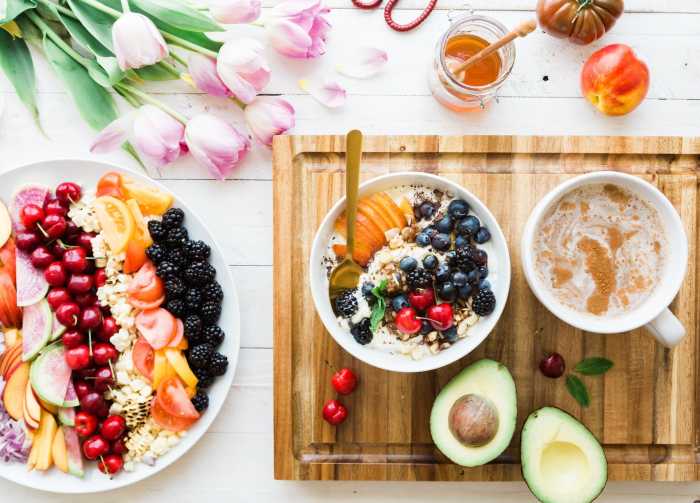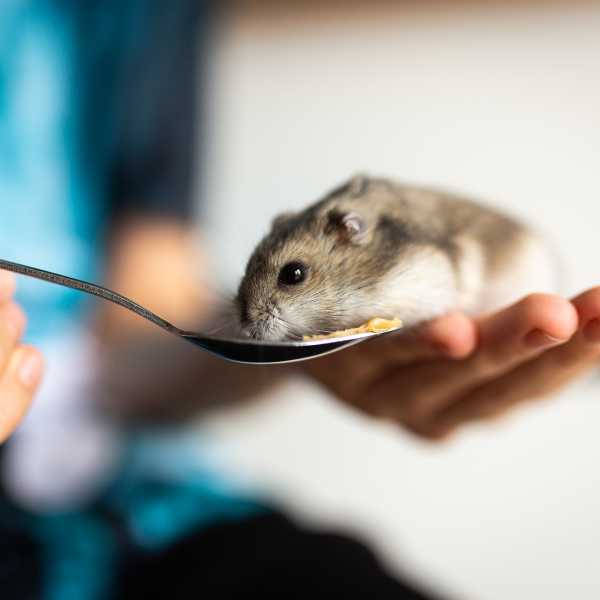
Patient - How to improve your immunity through diet and lifestyle
Posted on 16 December, 2022

Photo by Brooke Lark on Unsplash
Written by Dr Sarah Jarvis MBE and reviewed by Dr Krishna Vakharia for Patient
It's extraordinary to think that we have been living in a pandemic for well over two years. The development of the COVID-19 vaccine programme has been one of the most extraordinary examples of medical advances in history. Until December 2020 we had no vaccine, yet between July and December 2021, people who had been boosted were 93.4% less likely to die from COVID-19 than those who had not. But we're now moving into the phase of living with COVID-19. So how can you keep your immune system in top shape?
Of course, a strong immune system will help you ward off all sorts of infections, not just COVID-19. So how can you boost your immune system and stay healthy? You may remember the old adage, 'You are what you eat'. Well doctors today still agree with this, although they would probably adapt it to 'Where immunity is concerned, you are what you eat and how much you move'.
The importance of fruit and vegetables
The good news is that if you're already eating plenty of fruit and vegetables, you've made a good start. My mother, who would be over 100 if she were still alive today, had it about right with her mantra of 'an apple a day keeps the doctor away'. Although these days we prefer to prioritise vegetables over fruit, because of their lower sugar content, the same principles apply.
Eating whole fruit and vegetables is healthier than having them in fruit juice form - the fibre in whole fruit and veg slows absorption into your system, reducing blood sugar spikes. However, a single portion of fruit juice a day is better than an alternative sugary drink, because it does offer vitamins and minerals not found in sugary drinks. But no matter how much juice you drink, it only counts as a single portion of fruit and veg - and while the sugar it contains may be 'natural', it's still sugar.
Look after your skin
Your immune system is incredibly sophisticated, and there are hundreds of steps involved in keeping it working at peak capacity. Non-specific immunity is your body's first line of defence. Germs can enter through your nose, mouth or skin.
Your skin is the biggest organ in your body, providing a barrier to germs. Inflamed or damaged skin makes it easier for germs to penetrate into your system, where they can multiply and cause illness. If you have dry skin, using regular moisturisers will replenish lost fluid, which helps keep the barrier intact. For more severe inflammation, your doctor may advise steroid creams.
How does diet affect my immune system?
Where diet is concerned, variety is key for your immune system. The mantra of health specialists these days is that you should 'eat a rainbow'. If possible, you should try to eat 30 different vegetables, fruit, nuts and seeds of every possible colour in a week. That's because each of them contains different proportions of health-giving vitamins, minerals and other micro-nutrients.
Which vitamins do I need for a healthy immune system?
Antibodies in your blood can prevent germs from entering. A wide variety of vitamins and minerals - including vitamins A, C, D and E - are all involved in keeping your immune system primed. And all of these come from different healthy foods. Some of the most important are:
- Vitamin A. Confusingly, the main source of vitamin A in your diet is beta carotene. This multifunctional vitamin not only improves immunity, it may even help protect against cancer. Carrots are a fabulous source of vitamin A. But any orange, red or yellow veg, along with broccoli and peas, can top up your levels.
- Vitamin C. This vitamin helps shore up the barrier provided by your skin, nose and mouth, stopping germs getting in. As if that weren't enough, it also strengthens the ability of your immune system to (literally) eat up invading germs. Along with oranges, lemons and limes, broccoli, Brussels sprouts, spinach and pepper are high in vitamin C.
- Vitamin D. Long known to contribute towards healthy bones and guarding against osteoporosis (thinning of the bones), vitamin D also plays an important part in your immune system. Unlike other vitamins, it's almost impossible to get enough from your diet. So spend 20-30 minutes a day in the sun in spring and summer (vitamin D is made in your skin) and take a 10 microgram supplement daily from October-March (or all year round if you don't get out much).
- Selenium. This immune-boosting mineral is found in sunflower seeds, offal, seafood and Brazil nuts.
Does exercise boost my immune system?
The short answer is yes. Regular exercise has a host of health benefits and can extend your quantity, as well as your quality, of life. But where your immune system is concerned, there's evidence that taking regular exercise can reduce your risk of infections such as the common cold by 43% compared to people who exercise less than once a week.
What's more, regular exercise reduces your risk of a host of long-term illnesses. Many of these conditions can cause inflammation in the body, increasing your risk of infections and your chance of developing complications from them.
Regardless of your age, getting into a routine of regular exercise can benefit your heart, lungs, joints and general well-being, as well as your immune system. Once you're over 50, you should be incorporating individual muscle-strengthening exercises as well as 'aerobic' exercise (the kind that gets your heart pumping and makes you mildly out of puff). Whether it's squats and HIIT training, running, yoga, swimming or dance classes, all forms of exercise carry health benefits.
Many of my older patients worry about damaging their joints, or whether it's safe to exercise if you have a chronic condition - but as you get older, exercise becomes (if anything) more important, improving muscle strength and reducing the risk of falls. It's just a question of finding a form of exercise that works for you . Even if you hate the gym, with a little trial and error you can find an exercise you enjoy.
With thanks to 'My Weekly' magazine where this article was originally published.
To read the article written by Dr Sarah Jarvis MBE and reviewed by Dr Krishna Vakharia for Patient, please visit https://patient.info/news-and-features/how-to-improve-your-immunity
Did you know, being a homesitter offers occasional employment and interesting breaks from routine.
Our homesitters enjoy the chance to stay in new places and explore new surroundings, caring for other people’s homes, possessions and pets while they’re away. As many sits involve looking after dogs or cats, it’s also a great opportunity to enjoy the company of animals without the commitment or expense of owning them yourself.
As a homesitter, you have complete freedom to decide how many assignments you undertake each year, and what type of sits you do. While on assignment, you will receive a daily food allowance and travel expenses (both tax-free), and earn a modest remuneration to supplement your income. Home and pet sitting also provides an opportunity to make considerable savings on your own household bills while you are away.
To find out more, please visit: www.homesitters.co.uk/become-a-sitter/
Tags:



